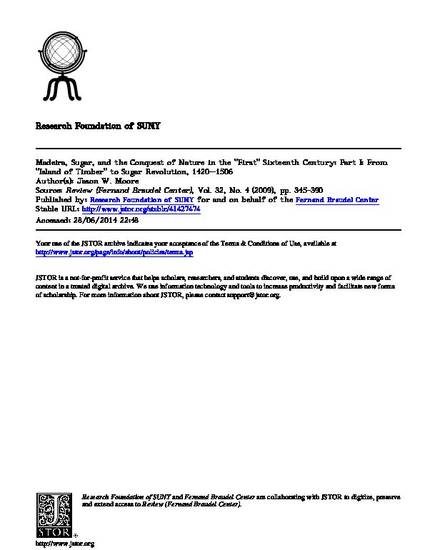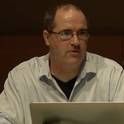
Article
Madeira, Sugar, and the Conquest of Nature in the 'First' Sixteenth Century, Part I: From 'Island of Timber' to Sugar Revolution, 1420–1506
Review: A Journal of the Fernand Braudel Center
(2009)
Abstract
Madeira is a small island with a large place in the history of the modern world. Madeira was home to the modern world's first cash crop boom, a sugar revolution. In the second half of the fifteenth century, the Portuguese Crown, Italian and Flemish capitalists, and Canarian and African slaves converged on this modest island to organize a commodity revolution that would catapult Madeira to the commanding heights of the European sugar economy. Cyprus had never produced more than 800 tons of sugar, and this figure had taken centuries to achieve; from almost nothing at mid-century, by 1500 Madeira outproduced its closest competitor by a factor of 6:1. Madeira's decline was no less rapid. The island's sugar production peaked in the first decade of the sixteenth century; by 1530 output had fallen by 90%. The furious pace of transformation, on both sides of the peak, can hardly be overemphasized. It is this, more than anything else, which distinguishes Madeira from its medieval forerunners.
Keywords
- environmental history,
- world-ecology,
- capitalism,
- sustainability,
- world history
Disciplines
Publication Date
2009
Citation Information
Jason W. Moore. "Madeira, Sugar, and the Conquest of Nature in the 'First' Sixteenth Century, Part I: From 'Island of Timber' to Sugar Revolution, 1420–1506" Review: A Journal of the Fernand Braudel Center Vol. 32 Iss. 4 (2009) p. 345 - 390 Available at: http://works.bepress.com/jasonwmoore/7/
